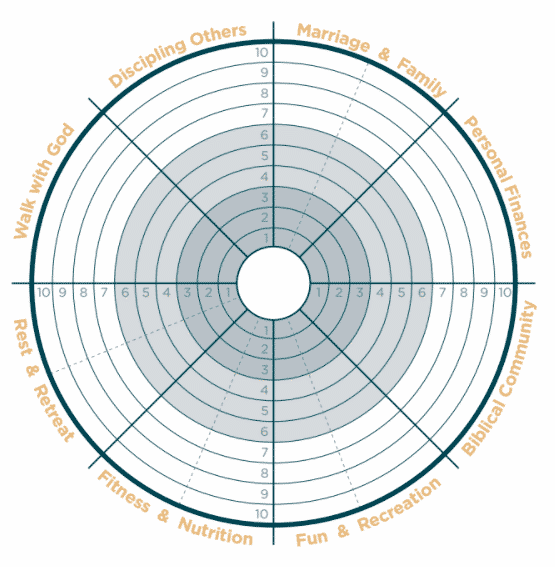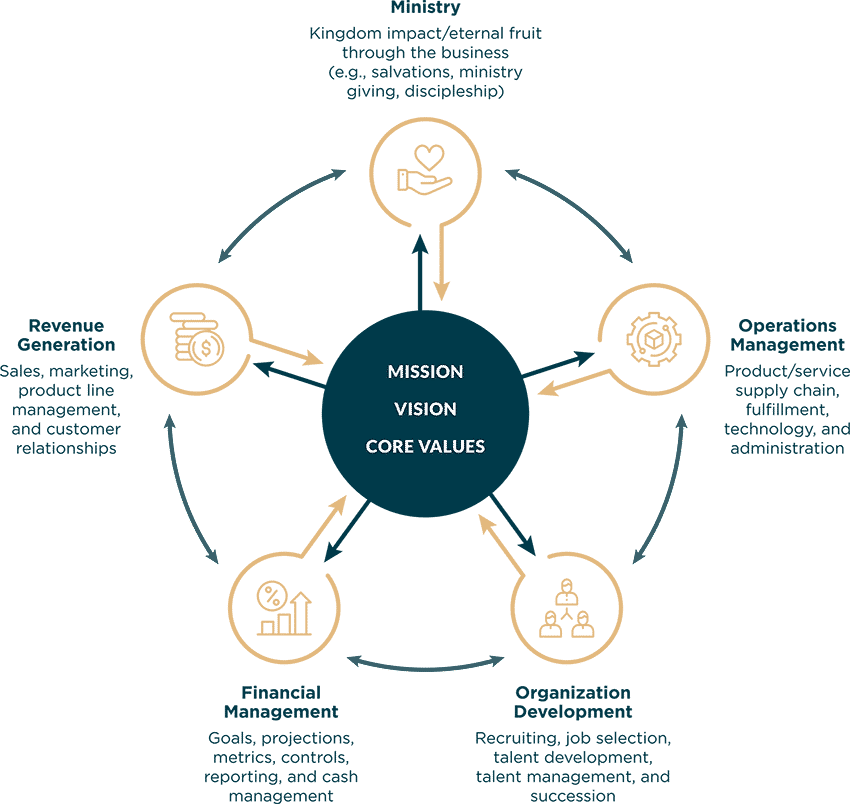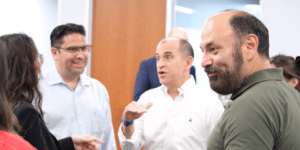Tools for Year-end Reflection & Alignment for Christian CEOs
So easily the end of one year can merge seamlessly with the start of another—the finish line barely visible in our rearview mirror as we round the corner and begin the harried and hurried lap all over again. And yet, there’s so much power in a pause. There’s so much wisdom to gain when considering the 12 months ahead in light of the ones behind. As we peer through a slow-motion lens, we can reflect, assess, dream, and plan. And then hop back onto the lap of life with renewed vision and purpose.
An important question for leaders to ask at least once, if not often, is “How do I define success?” Or more importantly, how does God define success? A hazard of today’s pace is that it can cause us to mistake busyness, or even achievement, for success.
Dietrich Bonhoeffer said, “Christianity preaches the infinite worth of that which is seemingly worthless and the infinite worthlessness of that which is seemingly so valued.” Essentially, Bonhoeffer called out our human tendency to find satisfaction in what the world values rather than to align ourselves with what God values. Perhaps most sobering is Jesus’s radical message to a crowd and His disciples:
“For what does it profit a man to gain the whole world and forfeit his soul?”
—Mark 8:36
The Measure of Success
To achieve true success, diligent leaders not only make great plans but also embrace disciplines to assess and adjust those plans. Excelling in balanced scorecards, disruptive innovation, and the five forces holds its importance, but how we define and pursue success should not come at the expense of our balanced well-being and identity in Christ. Even amid a global pandemic or economic recession that threatens our businesses, we must choose to prioritize according to God’s Word and trust Him for the results. We remind ourselves of God’s priorities and shape our life accordingly by using the diagram below.

Perfection is not attainable or sustainable, but aiming for a “perfect 10” in each area of the balance wheel embraces a continuous journey toward a healthy, flourishing, and “abundant” life. What must be different by the end of next for us to experience that?
Meditate on the following questions to develop realistic but ambitious goals that will help you reach your end-of-year vision.
- Walk with God: How am I prioritizing my relationship with the Lord? How can I enjoy increased intimacy with Him?
- Discipling Others: Who am I mentoring in the faith? Who is mentoring me?
- Marriage & Family: Does my family feel valued by both my words and actions?
- Personal Finance: Do I save and spend wisely? Do I give generously?
- Biblical Community: How am I engaging with other believers? Do we cultivate accountability?
- Fun & Recreation: How often do I renew and refresh by having fun, on my own and with my family?
- Fitness & Nutrition: Do I honor God with my body through healthy habits?
- Rest & Retreat: Am I getting enough sleep? Do I build margin to slow down, enjoy silence, and gain perspective?
Our Abundant Life Assessment Tool and Goal Planning Worksheet are available below. Capture your ideas in one place and reference them throughout the year as challenges or opportunities arise to maintain your focus and renew your energy.
Looking Back to Lead Forward
With our personal goals in place for a balanced year ahead, we can lead the business in greater health and confidence. Executives are straining to focus through the haze of accelerated change, disrupted fundamentals (supply chain, workforce, etc.), and structural inflation. A famous study found that complexity alone eroded 10% of profitability, even for successful companies. Given the dynamic of VUCA (volatile, uncertain, complex, and ambiguous) factors in all industries, companies’ resiliency is separating leaders from laggards.
Resilient (adj.):
able to become strong, healthy, or successful again after something bad happens
We can build resilience in our teams by clarifying priorities across the business. Complexity and zealous optimism are top risks to business planning, which are only accentuated when unmoored from facts, wise counsel, and accountability. As stewards, we aren’t just called to build inspiring visions. We’re called to carry out realistic plans that bring actual results! (As we say often, priorities are what we do; everything else is just talk.)
A helpful exercise to provide focus to our team is to assess the five areas of the business, utilizing the 5-Point Alignment Matrix below.

- Revenue Generation: Do our sales tactics, marketing approaches, product line management, and customer service offerings effectively increase profitability?
- Operations Management: Are we delivering a quality product, fulfilling orders in a timely manner, and utilizing the appropriate technology?
- Organizational Development: Are we finding, hiring, developing, and promoting high-performing team members who align with our mission, vision, and core values?
- Financial Management: How do our goals and projections measure up with our year-end revenue? Can I find clear and accurate information in our reporting?
- Ministry: How are we reflecting the love of Christ and sharing the gospel intentionally through initiatives and organically through operations?
(Read more here about how the matrix can shape decision-making in business.)
As these questions evoke ideas and goals for the coming year, which is the most critical objective? What is the one thing that if not accomplished, the organization is at risk and the rest of what we do is in vain? Another way to think about an annual focus could be: This time next year, when we will be reflecting on the previous 12 months, how do you want to describe the growth of your company’s reputation, progress, and impact?
This one over-arching objective is the unifying dominant idea that guides planning, decision-making, and progressing towards our organization’s vision. It informs our strategic objectives, goals, and plans across the five core business domains mentioned above. Furthermore, it acts as a guiding compass for everyone in the organization, too.
Embracing Feedback
Setting our objectives is a critical milestone in the planning lifecycle. But we should avoid setting them in a vacuum when we can leverage outside perspectives to uncover blind spots and guide ongoing accountability.
The power of feedback hinges upon how effectively we embrace counsel. In 2019, self-proclaimed “serial entrepreneur” Tim Heyl walked into his C12 Forum excited to share his new venture idea. Rather than praise and encouragement, his peers gave him some challenging and honest feedback. Tim listened. He paused. He considered their words. And in doing so, his decisions that followed had monumental downstream impact.
Journey to the Promised Land
God established the disciplines of resting and reflecting long ago. After the famed Exodus, the Israelites were eager to enter the Promised Land. We can imagine how difficult it must have been for them to stop all progress on the Sabbath and take time to reflect (Deut. 29:2–6).
And yet they paused anyway. Because God found it vital to their development as His people. Consumed by our desires and goals, we, too, can easily neglect to remember God’s sovereign care over our lives. Let’s regard this upcoming year as a similar journey of learning, growing, and following the Lord as we obey God’s commands to reflect, assess, celebrate, and plan.
December 29, 2021





